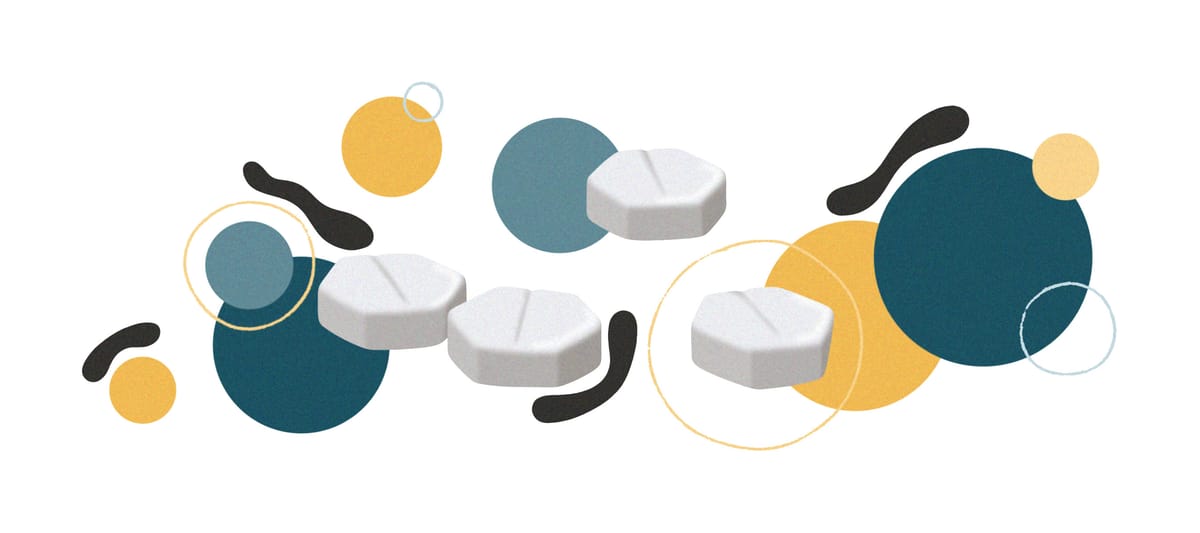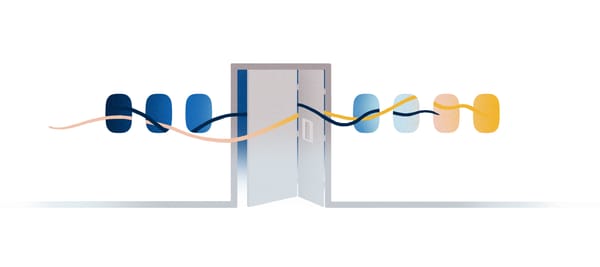The Night I Ended My Pregnancy
by Julie Parker | Three trips to Walgreens.

The night I ended my pregnancy, my three-year-old was extremely constipated. He screamed in pain for an hour and a half as my husband and I offered him juice, Ex-Lax chocolate squares, popsicles, and anything else we could think of. We left a message on our pediatrician’s on-call line and texted our neighbor, a pediatrician himself, who kindly offered us advice when we needed it. He talked to my husband about constipation for thirty minutes, and I was so grateful for the blessing of good neighbors.
The night I ended my pregnancy, we made three separate trips to Walgreens: the first, to pick up the misoprostol prescription and a box of tampons, as my ob-gyn had suggested that an easy way to insert the misoprostol pills into my vagina was via a tampon applicator; the second, to pick up suppositories for the three-year-old, in case the poop situation got desperate; the third, at 11 p.m., when I realized that the cashier had forgotten to put the tampons in our bag earlier. On the third trip, my husband unknowingly dropped his wallet in the Walgreens parking lot.
The night I ended my pregnancy, I prayed to God. I was raised Jewish, but I’m not really the praying type. Through weeks of blood tests and ultrasounds, when things looked promising and when they didn’t, until we finally got the news that the pregnancy was not viable, I had not once asked God for anything. I had not begged for a normally growing embryo, even though I wanted one. But walking home from Walgreens after trip number two, I began chanting to the beat of my feet on the pavement: “Dear God, please let him poop. Please, please, let him poop.”
And then, after my three-year-old finally pooped and we put him to bed, hours late, I sent up a silent thanks. I was so grateful that my son slept peacefully, his abdomen no longer aching. Snuggled up with his well-loved stuffed panda, he had no idea of the task at hand for his parents. At least, I hope he didn’t. Maybe he had sensed my anxiety and it manifested in constipation.
The night I ended my pregnancy, my husband rigged up a tampon applicator with the misoprostol pills. He’s an engineer, calm and levelheaded, and I told him this was his moment. I was jittery and needed him to figure it out, and after a couple rounds of trial and error, he came through, squishing the pills into the end of the applicator so I could shoot them into myself like tiny bullets. We laughed at the absurdity of it all, a mixture of nervousness and gallows humor.
The night I ended my pregnancy, I wasn’t sure what to call it. A miscarriage? Well, there was a nonviable embryo involved, but to me a miscarriage meant that your body made all the decisions. I was taking action—playing God, in a way—so was it an abortion, then? That language felt too loaded, too clinical, too extreme for what was happening that night in my bathroom between me and the ball of cells that was at that point really just a ball of hope.
As the misoprostol took effect, I began shaking violently, just as I had during my C-section when my son was born. No one had ever told me that can happen when you’re in labor, and I was scared and confused on the operating table, my mouth so dry I couldn’t speak and my arms flopping around like fishes out of water. This time, the shaking felt almost like a ritual, a revival, a way to mark the fact that this was another kind of labor. It felt like a holy ending for the embryo inside me.
I was grateful for my kind ob-gyn, who had, unprompted, said to me on the phone earlier that day, “It’s nothing you did or didn’t do or could have done. Sometimes these things just happen.” Grateful she gave me the option to end the pregnancy rather than waiting to miscarry, and grateful that I took it.
The night I ended my pregnancy, someone stole my husband’s wallet from the Walgreens parking lot and used his debit card to pay for a DoorDash delivery from TGI Fridays.
The night I ended my pregnancy, I felt mostly relief. The tears had already come and gone. Earlier in the week, sitting in the car after the ultrasound appointment that showed a vacant black oval where there should have been something pulsating, I had sobbed in my husband’s arms, then sat in silence and stared at the synagogue across the street. Though I had never set foot in that particular temple, hadn’t been to a service in ages, I wondered if I could slip into the sanctuary and just sit quietly, like people do in churches in movies during their dark night of the soul. All I really wanted was a cavernous, dark room with candles and the potential of some larger presence. Instead, we picked up sandwiches and drove home.
Julie Parker is a writer whose work has appeared in Salon, McSweeney’s, Scary Mommy, and elsewhere. She lives in Cambridge, Massachusetts, with her husband and two kids. Find her at julieparkerwrites.com.
This essay is a Short Reads original.
From the archive
Aug 28, 2024
“The Landlord, the Tenant, and the Machete”
by Beth Kephart | It was a fine arrangement. Aug 30, 2023
“Anna Maria Island (I)”
by Brian Turner | Seeking immortality in the surf.
PS/ A big THANK YOU to the 36 readers who recently became supporting subscribers of Short Reads!!
Want more like this? Subscribe to Short Reads and get one fresh flash essay—for free—in your inbox every Wednesday. Or become a supporting subscriber and help us pay writers.






